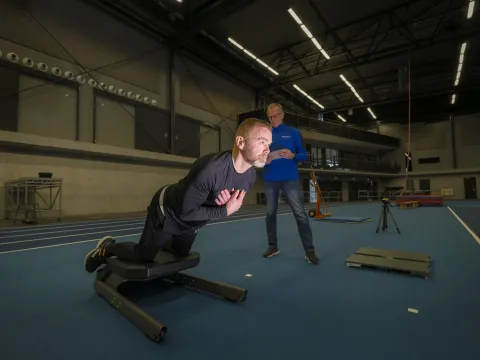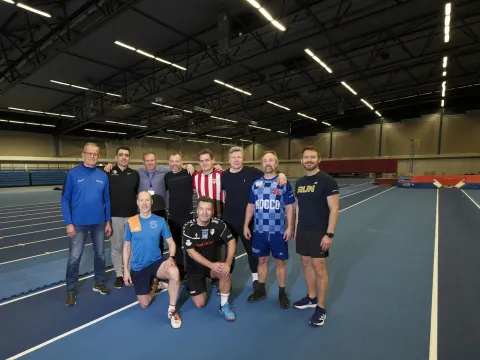
Research scientists in sport and health sciences and social sciences at the University of Iceland have joined forces with the Football Association of Iceland (KSÍ) and the football club Þróttur in a project aimed at supporting the physical fitness of football referees, both in the top leagues and at the grassroots level. At the same time, they will study the psychological, social, and physical effects on older players participating in the social activities of sports clubs, with members of Þróttur's Old Boys team playing a key role. The participants in the project recently attended measurements at Laugardalshöll.
The collaboration began last year and originated from a conversation between Guðberg K. Jónsson, director of the Social Science Research Institute and the Human Behaviour Laboratory at the University of Iceland and Gunnar Jarl Jónsson, an experienced football referee and member of the KSÍ referee committee. The discussion focused on strengthening the refereeing profession and improving top referees' physical condition while engaging older players in refereeing roles for younger age groups. Guðberg, who also leads the Old Boys activities of Þróttur in Laugardalur, had also been interested in researching the impact of football participation on his peers' mental and physical health.
As a result, Guðberg and Gunnar approached Milos Petrovic for collaboration. Milos is assistant professor and head of the Research Centre for Sports and Health Sciences at the University of Iceland's School of Education. The centre is equipped with some of the best sports measurement equipment in the world. Additionally, Valgeir Einarsson Mäntyla, a physiotherapist and chiropractor at Kjarni Rehabilitation, KSÍ, and Þróttur, is involved in the project.
Both Guðberg and Milos have extensive experience in working with athletes and have worked for some of the best football teams in the world. Guðberg has worked on projects for Liverpool and Barcelona, and Milos for Manchester City.

